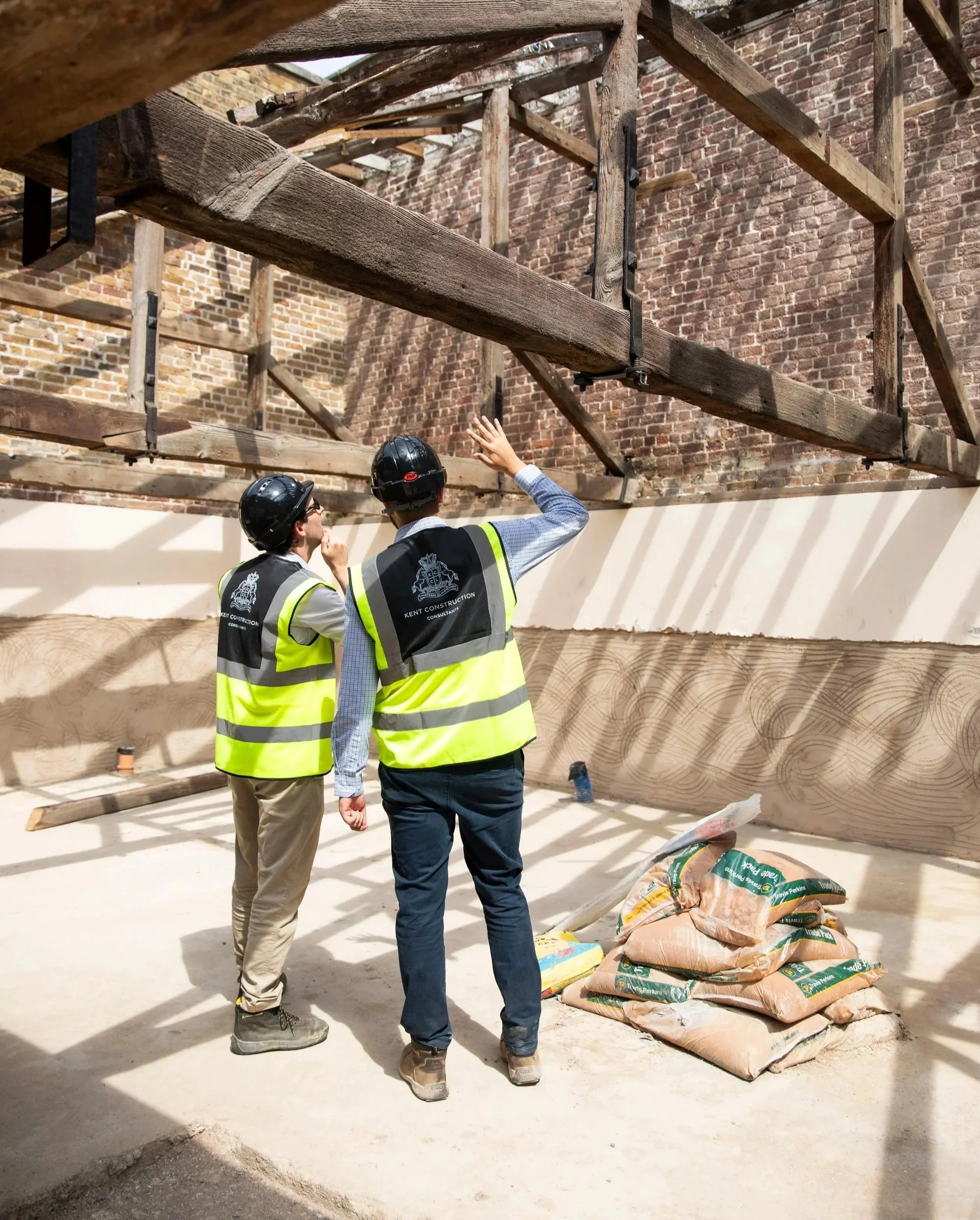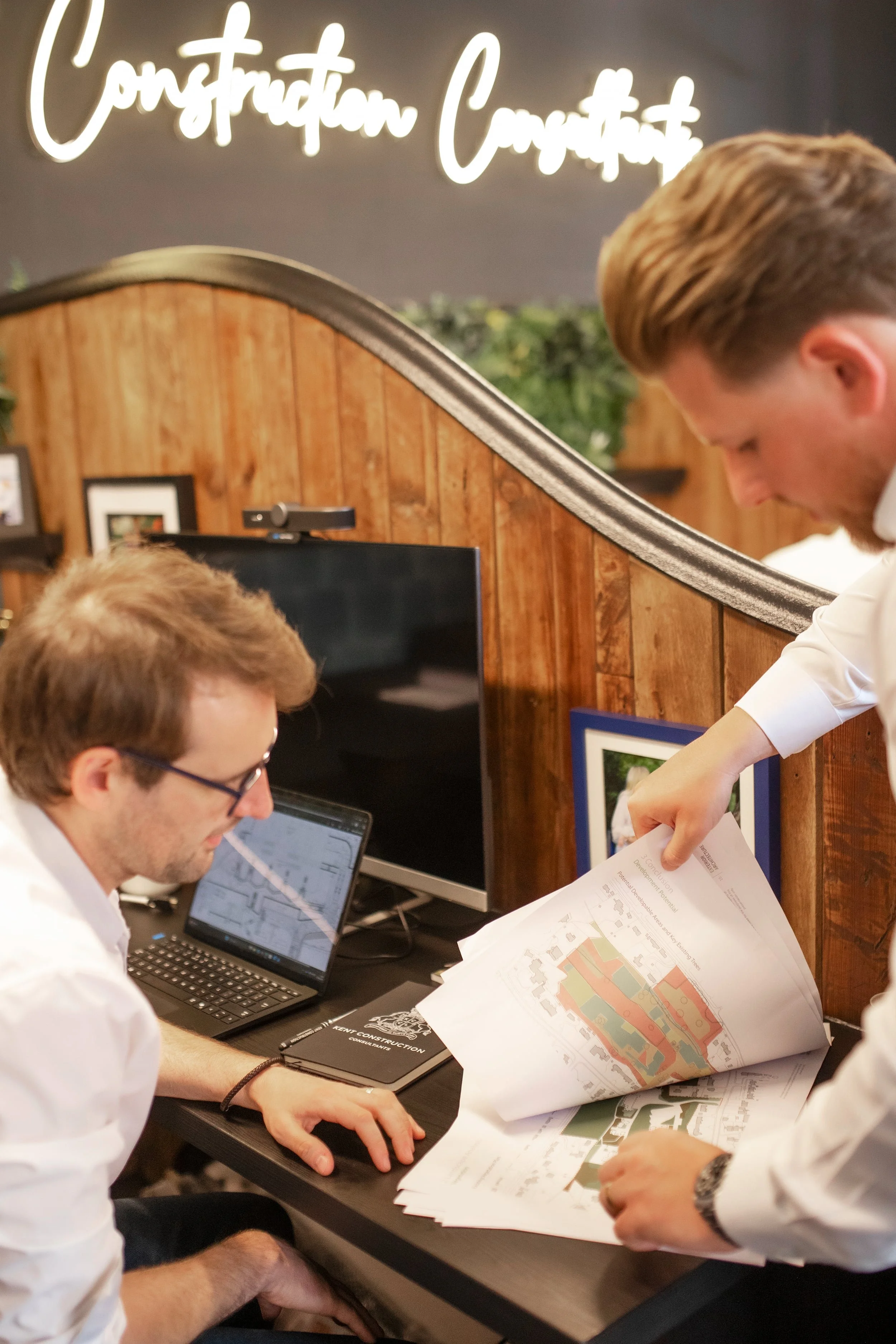Trainee, assistant or graduate qSLaying the Foundations
An Introduction to the World of Quantity Surveying
A trainee, assistant or graduate quantity surveyor is responsible for shadowing and assisting with the pre-construction and delivery stages of contracts and reporting costs of a construction project. His/her job description requires them to gain knowledge, assist and undertake with supervision the studies of project durations and labour costs, examine and analyse material costs, prepare RIBA staged cost planning, cost assessments and value engineering, tendering and procurement, contract preparation, coordinating supply deliveries, raising payment certifications, change control management, contract administration and providing clients, contractors and stakeholders advice and suggestions on legal and contractual issues whilst being overseen and guided by their seniors.
Any role of training requires the employee to utilise his/her skills, creativity, and professionalism to ensure that building projects remain within a given budget and programme duration. In performing their duties of assisting seniors and managing the costs involved in building and civil engineering projects from initial calculations to final figures, trainee quantity surveyors must assist with various commercial activities in his/her day-to-day activities.
Guided Growth
Developing Confidence Through Supervised Experience
Throughout training roles and early stages of his/her career, it's essential that careful supervision is provided to oversee the progress across various building and civil engineering projects by assisting with the verification and reconciliation, preparing and assisting with cost reports to clients and/or stakeholders on claimed executed work of contractors, understanding the stage of work accomplished, and checking progress payments according to the accomplished work certified by his/her seniors, or understanding with guidance, the trainee, assistant or graduate’s own certifications.
He/she must review, comment and report labour and material costs, as well as assist with the preparation of contracts to ensure that expenses are minimized and the best deals are achieved. It is also important that a training quantity surveyor liaises and works cooperatively with the wider professional team, and other quantity surveyors within the firm so that projects can be carried out efficiently and effectively.
The trainee, assistant or graduate quantity surveyor must also ensure that he/she keeps an accurate record of project records and expenses by preparing reports, analyses, contracts, budgets, risk assessments, and other documents, as well as keeping adequate and accurate track of materials and ordering more supply when required. Here, guidance and supervision will be provided, but the professional will also be required to manage their own projects.
Shaping the Future
Skills, Qualities and Qualifications to Succeed
He/she must stay updated on building and civil engineering industry development and trends. To become a quantity surveyor, individuals should possess certain skills and qualities to help them achieve efficiency and productivity in their work.
Some of these required skills and qualities include strong analytical skills, critical thinking skills, adequate knowledge of construction, excellent negotiating skills, well-developed interpersonal skills, ability to plan, organize, and strategize, good networking abilities, detail-oriented mind, great verbal and written communication skills, and good time management skills.
In terms of academic qualifications, individuals who want to work as a trainee or assistant quantity surveyor are required to be enrolled or undertaking a part-time bachelor’s degree in Quantity Surveying, Construction Science or Construction Management, or in any other related field. Graduate quantity surveyors must hold their degree qualification having undertaken a quantity surveying and/or construction-related Degree full-time, and now seeking full-time employment to facilitate a training role. Degrees are usually accredited by the Royal Institute of Chartered Surveyors and candidates are required to work towards professional chartered status when permitted by professional bodies, which includes either MRICS or MCIOB.
Key Responsibilities
Typical duties include:
Prepare NRM1 Cost Plans and develop an understanding of NRM2 Bills of Quantities under senior guidance
Learn the RIBA Plan of Work stages, construction delivery methods, and procurement strategies
Assist with the preparation, collation, and delivery of tender documentation and procurement processes
Support the discharge of planning conditions and pre-construction requirements alongside senior team members
Attend and contribute to key project meetings, including design team meetings, mid-tender interviews, and pre-start sessions
Support various procurement routes including traditional, design & build, and construction management approaches
Assist in managing contracts using JCT, NEC, and Framework forms—drafting, reviewing, and administering as required
Prepare and submit monthly cost reports, valuations, payment notices, and cost value reconciliations in line with contract requirements
Contribute to change control procedures, helping assess variations, risks, and opportunities
Monitor project budgets and cash flow forecasts aligned to construction programmes
Maintain clear project documentation and demonstrate strong presentation and communication skills
Use digital measurement tools (e.g. Bluebeam, CostX, Causeway), and collaborate effectively within commercial and wider project teams
Key Requirements
Typical qualifications, skills, and attributes include:
PreAnalytical and critical thinking skills to support cost control and project management
Eagerness to learn construction estimating, procurement, and finance principles
Developing knowledge (or good understanding, for graduates) of construction methods, materials, and industry guidelines
Strong organisational and time management skills to plan, prioritise, and work effectively
Clear verbal and written communication for reporting and stakeholder engagement
Willingness to obtain professional chartership (e.g. MRICS or MCIOB)
Actively studying for, or already holding, a degree in quantity surveying, construction science, construction management, or a related field
Basic negotiation skills (expected to be stronger at graduate level)
Openness to feedback, collaboration, and continual learning
No prior experience required, but any construction exposure is welcomed
Minimum annual CPD: 20 hours for trainees / 48 hours for graduates and assistants






